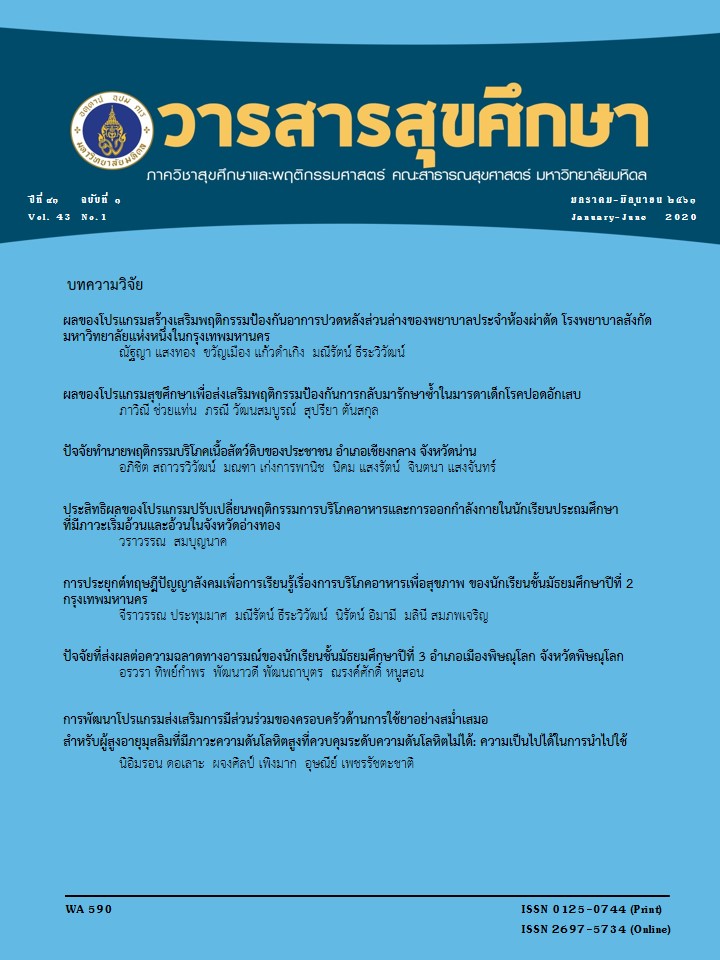Effectiveness of the Program for Changing Food Consumption and Exercise Behavior in Primary School Students Who Are Overweight and Obesity in Angthong Province
Keywords:
Program for Changing Food Consumption and Exercise Behavior, The Operant Conditioning Theory, Overweight and ObesityAbstract
This quasi – experimental research aimed to study the effectiveness of the program for changing food consumption and exercise behavior among primary school students who are overweight and obesity, Angthong Province. The sample group was primary school students in grade 1-6 who were nutritional status with overweight and obesity. The sample size of experimental group was 43 people and selected by purposive sampling. They participated in the program for changing food consumption and exercise behavior by applying the learning theory and the operant conditioning theory which the program has taken for six weeks. There were many activities: enhancing knowledge by teaching with media, slides, video, demonstration, and skill building in selecting food consumption based on color zones; practicing physical activity; strengthening motivation by collecting stickers in order to redeem prizes according to the agreement rules; applying social support from teachers, parents and public health officials in prompting and appreciation. Weighting and measuring height were for evaluating their own nutritional status and giving individual recommendations according to the assessment form in the food consumption for controlling overweight and obesity in school-age children. Experience sharing was to practice in the experimental group with good performance results according to the target. Data collection was conducted by pre and post experiment with the interview form and the nutritional assessment. Data analysis was used by statistics, frequency, percentage, mean, standard deviation, and Paired t-test.
The results were found that after participating in the program, the experimental group had better nutrition than before participating in the program. As a result, obesity decreased from 72.1 percent to 65.1 percent and overweight decreased from 27.9 percent to 25.6 percent. The percentage of chubby and slender was increasing. For food consumption and exercise behavior, it was found that before and after participating in the program, the average score was 7.4 and 15.0 respectively. The average score of food consumption and exercise behavior increased significantly (p<0.05).
Therefore, public health officers and teachers can apply this program for changing food consumption and exercise behavior in order to develop and promote the nutritional status in primary school children. It should give encouragement, compliments, reminders or rewards for children, use persuasion speech and give confidence to children continuously.



